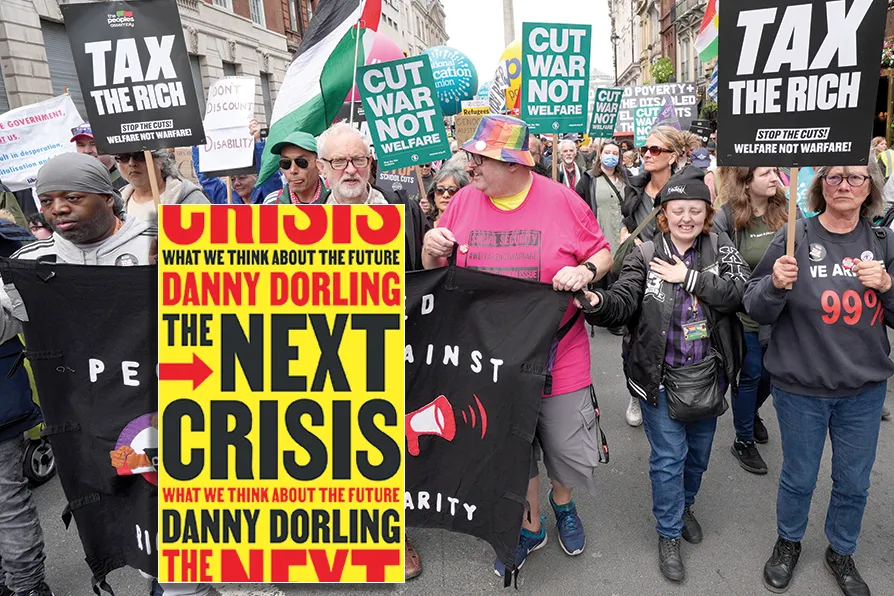RITA DI SANTO draws attention to a new film that features Ken Loach and Jeremy Corbyn, and their personal experience of media misrepresentation
PAUL DONOVAN is fascinated by a deep dive into contemporary social crises, that examines how they are manipulated by elites

 REASONABLE SOLUTION: A call to 'tax the rich' at the People's Assembly Against Austerity protest in central London onJune 7 2025
REASONABLE SOLUTION: A call to 'tax the rich' at the People's Assembly Against Austerity protest in central London onJune 7 2025
The Next Crisis - what we think about the future
Danny Dorling, Verso, £22
THE NEXT CRISIS presents a fascinating examination of what are perceived to be the crises of our times. The author examines how these crises mean different things for different groups and how elites manipulate priorities.
Professor Danny Dorling dives deep into the problems, then comes up with a surprisingly upbeat message of hope for the future.
The different crises from cost of living, inequality and poverty, to war, violence, healthcare and climate are examined in turn. Then, he points out how they can move around according to the reality of different groups’ lives, what they fear and why.
The Dorling mantra is that most of the crises emanate in some way from inequalities in societies, and that poverty and division are central to the narrative of how they play out. So, a health crisis like Covid, was dealt with better by more equal countries like Finland.
Equally climate and biodiversity crises will be better dealt with by more equal societies, and also, that the more equal countries are the happier ones.
Dorling looks at immigration, a subject manipulated by elites to stir fear and division. He explains how migrants coming to an area can galvanise economies, while their departure triggers unemployment. The danger for an ageing population, like that of Britain, lies in not being able to attract the migrants required to run the economy, and not in being over-run.
The present hostile environment is not attracting migrants. Dorling recalls how at Oxford University last summer, after the racist anti-migrant riots, that he and his colleagues wondered whether some students would return for the autumn term.
Throughout, there are reminders of the damage done to societies by the rich elites. It is they who damage the planet most, use private planes, private schools, build buy to let portfolios and pass on inherited wealth.
Dorling puts the downgrade of climate and biodiversity crises in ratings across the world as being partly, or even mainly due to the influence of the rich people. The promotion of climate scepticism or denial over recent years has profited the rich.
Among the answers is the need to reduce inequality and revive the idea of community and social solidarity. Dorling is hopeful for the future, though believes there could be major crises ahead, many not even yet contemplated.
This latest book from Danny Dorling is a good read, a little dense at times, but offering a real insight to the problems of the world. It offers a great opportunity to learn more as to why we have the problems we have, but also how priorities get manipulated for the benefit of rich elites. There is, though, a message of hope for the future in troubled times.
An important read for those who want to understand better the world in which we live, as well as what might be coming next.

JOHN GREEN wades through a pessimistic prophesy that does not consider the need for radical change in political and social structures













